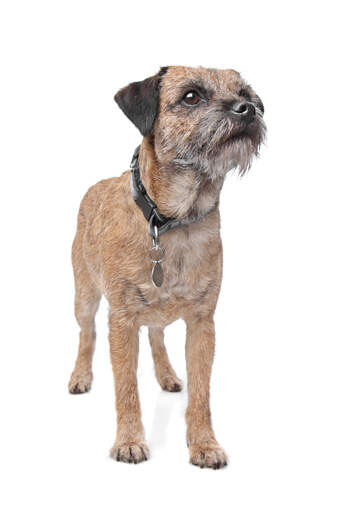Border Terrier Dogs











History
Said to be one of the oldest terrier breeds, the Border Terrier originates from the border country between Scotland and England. It was bred for use in fox hunting, being small enough to follow a fox underground. Once known as the Coquetdale Terrier, the modern name was adapted by 1870.
Behaviour
Border terriers are inquisitive, friendly, hardy little dogs and make great pets. They are independent and very 'terrier-like'; so not the most obedient of breeds. What they lack in obedience, they more than make up for in companionship. They love being around people, but won't want constant attention or be under your feet all day. Males can be aggressive towards other males, so it is important to socialise your dog from an early age and keep this up. They will be happy with another dog in the house, but anything small and furry won't stand a chance. They make excellent rat catchers and are often kept by Farmers. Being active, agile dogs, they need regular exercise preferably somewhere safe as they like to run off in search of prey. With their high intelligence, Borders are easy to train, but won't always obey, as they can be stubborn. Food helps as they can't resist a treat, however they will be just as happy with a cuddle. Keeping a Border Terrier off your bed/sofa/lap is a challenge. They will need a very secure garden as they are renowned escape artists and will climb and tunnel their way out of any situation. Border Terriers tend not to lose much fur, a clip every few months and occasional brush should be enough. Given enough exercise, attention and training, Border Terriers make a wonderful addition to your home - provided you can keep up with them.
Temperament
Border terriers have an inquisitve and friendly temperament. They love human contact but will be independent enough to not be getting in your way all day. Hardy little dogs bred for fox hunting they have good stamina and enjoy plenty of exercise daily. Can cause mischief in the way of digging up your garden or chasing smaller animals so perhaps not best to keep with cats.
Better with other dogs than most terriers they are very intelligent but may prove stubborn when it comes to training.
Health Problems
Health problems that may affect Border terriers include canine hip dysplasia (CHD), patellar luxation (dislocation of the kneecap), heart defects and malocclusions (jaws do not fit together correctly).
Breed Details
- Status: Common
- Life Expectancy: 12 - 15 years
- Weight: 6 - 7 kg
- Height: 10-11"
- Rare: No
- Coat: Short
- Grooming Requirements: More than once per week
- Town or Country: Either
- Minimum Home Size: Flat
- Minimum Garden Size: Small to Medium Garden
- Breed Type: Pest Control Dog
- Size: Small
- Energy Level: Medium
- Exercise Required: Up to 1 hour














